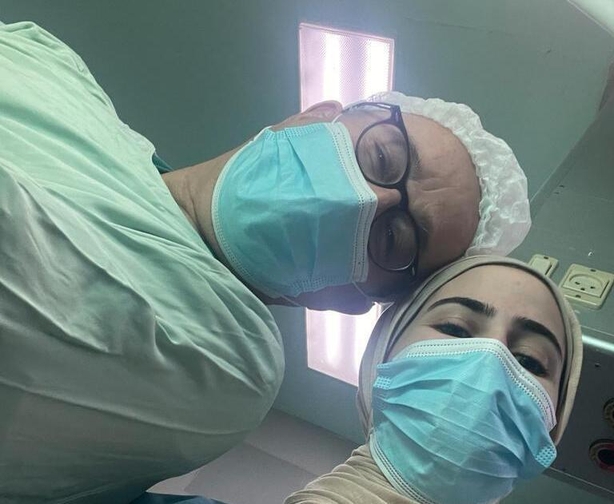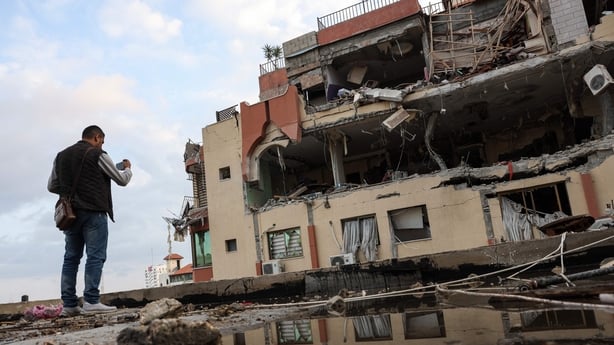It was a trip to Gaza that started out the same as so many others over the past decade.
Professor Nick Maynard, consultant surgeon at Oxford University Hospitals, arrived last Sunday.
He has been travelling to Gaza since 2012 and the West Bank in Palestine since 2007 to teach medical students.
But after fighting broke out between Israeli militant groups, he is now seriously concerned over the welfare of hundreds of cancer patients who desperately need treatment, despite the ceasefire which has taken effect between Israel and Palestinian militants in the Gaza Strip.
Professor Maynard was planning to do three days of surgeries and to help students learn major cancer and keyhole surgery
The first two days went to plan. He met with local doctors, discussed the cases and met with patients on Sunday. On Monday, he operated all day according to the schedule.
But on Tuesday morning, the first major attacks from Israel on Gaza took place.
"We woke up in the morning to be told that Gaza was locking down, that we were not allowed to leave the hotel, that all planned surgery was being cancelled in order to create capacity for all the emergency surgery. And we've been stuck in the hotel ever since," Professor Maynard told RTÉ News.

The border between Gaza and Israel was closed on Tuesday.
Since then, the organisation that brought Professsor Maynard to Gaza, UK-based charity Medical Aid for Palestine, had been trying through the UN to negotiate a way to get them out.
"But far more importantly they’re negotiating to allow the Gazan patients with cancer that need to go to the West Bank for treatment to get out," Professor Maynard said.
He explained there is a steady stream of patients, around 100 patients every day, a small portion of those who have cancer, who cannot be treated in Gaza.
There is no radiotherapy facility in Gaza, people need to travel for chemotherapy and there are surgeries that cannot be done there. He said patients need to go to the West Bank or Jerusalem for treatment.
He believes there were more than 400 people who were denied transit to the West Bank because of the border closures.
"That is what is concerning us the most at the moment. These patients who need urgent treatment and cannot get there. So there are a lot of negotiations going on to try and persuade the Israelis to open the border for that," said Professor Maynard.

During his stay, Professor Maynard felt safe in his hotel, and he has been supported by Gazan friends that he has gotten to know over his many trips.
However, he feels very apprehensive about the situation, which he describes as dispiriting and frustrating.
"We've come here to operate, and we can't do that. So, I think it'll be better for us if we could actually get into the hospitals and do some work, but we're not even allowed to do that at the moment," he said.
"I think we're just remaining very positive that we will get out soon. And as I said, more importantly that the patients will start getting their care again," he added.
The situation has also reinforced his belief that it is more important now than ever that humanitarian work is continued in Gaza.
"We come here for humanitarian reasons without any political incentive whatsoever, it's entirely humanitarian causes. We want people to know what's going on, because I don't think it's very well reported in the West," Professor Maynard said.
"And I think people need to know much more about what's happening to the people in Gaza."
Yesterday evening, Professor Maynard's family informed RTÉ News that he had boarded a bus for evacuation. At short notice they were told to leave with just the clothes they were wearing and no belongings, potentially on route for Ashkelon or Tel Aviv.







